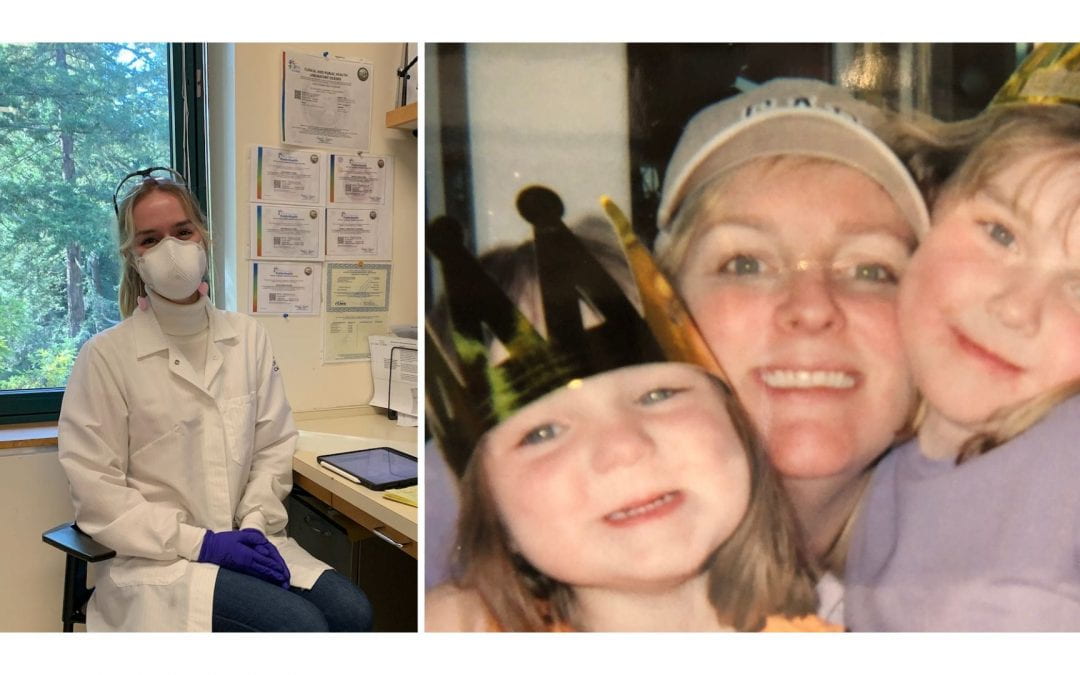Molly McCabe, Undergraduate Researcher
September is Childhood Cancer Awareness Month. To help spread awareness of the different cancers that impact children, we will be profiling a different researcher each week to talk about the cancer they study, their motivations for doing this research, and how they hope their research will help in the fight against childhood cancer.
What motivates you to do this research?
Cancer has impacted me deeply. I lost my mother to melanoma when I was 13 years old, and my now-14-year-old brother is 10 years Medulloblastoma free. Working for the Treehouse Childhood Cancer Initiative, Olena Vaske, and Anouk van den Bout has allowed me to understand the disease further, and made me feel like I am contributing to making the lives of cancer patients and their families better. I am so grateful to be a part of the important work Treehouse is doing!
Outside of my research, I am also very involved in the cancer community. I was the director for Camp Kesem this year, which was very special to me. Due to his medical needs post-cancer, he hasn’t been able to go to camp or other kid’s activities. Our team made it possible for him to come.
What type of cancer do you research?
I am a part of the Treehouse Childhood Cancer Initiative and I am helping with the validation of a pediatric genomics clinical diagnostic lab. Our goal is to receive tumor samples from the clinic, extract RNA, then sequence it to generate gene expression data. Using this data, we can compare gene expression to other cancers and wild-type expression [its typical form as it occurs in nature]. This analysis can lead to more individualized and better treatments for pediatric cancer!
How might this research help children with cancer?
Treehouse has performed this sort of RNA analysis in a research-grade setting. I am hopeful that with the validation work we are doing in Olena Vaske’s lab, it will one day become a standardized test leading to prolonged lives and increased life satisfaction for kids with cancer.
What do you wish people knew about childhood cancer?
Kid’s cancer is very different from adult cancer. A big factor in this is that adult cancers often have many genetic mutations, whereas pediatric cancers have relatively few. I truly believe that looking at pediatric cancer through a different lens using our RNA analysis could change treatment for the better.


Recent Comments